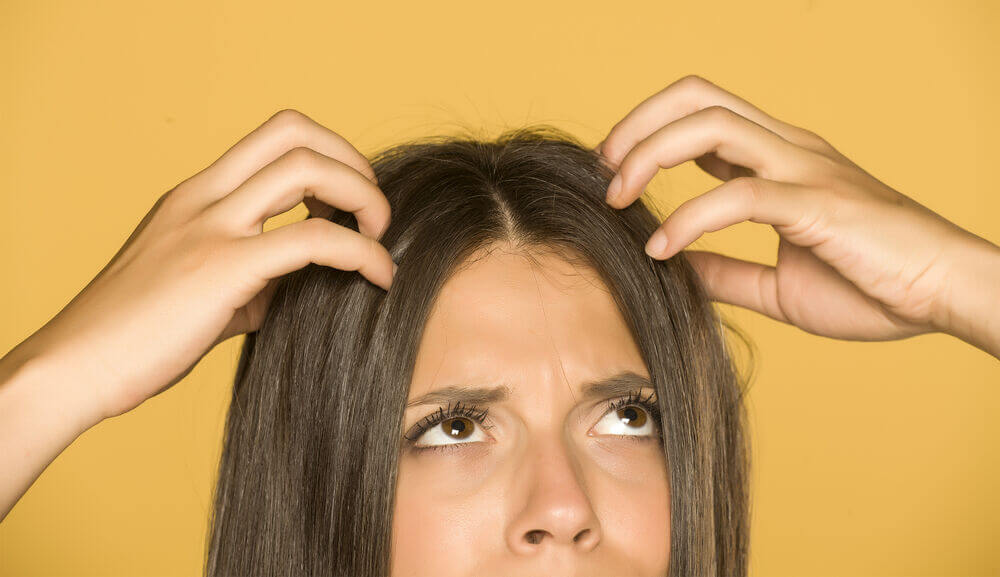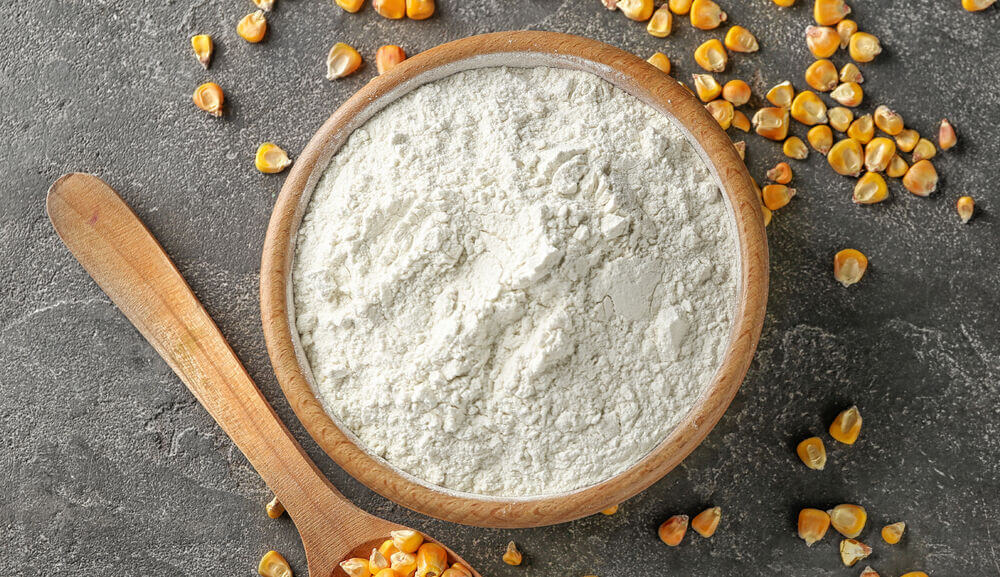Opening the debate on this hair-refreshing staple
Written by: 100% PURE ®
Thanks to dry shampoo, many of us have been spared a hair disaster or two. This waterless shampoo option keeps styled hair fresh and oil at bay, while being unbeatable in terms of convenience. But as the popularity of dry shampoo has risen, so have concerns over how healthy it is for hair.
We’re getting to the bottom of whether dry shampoos have not-so-great effects on hair, or if they can actually be used as part of a healthy hair care routine. Keep reading to find out how dry shampoo works, and if it could be right for you!
Although dry shampoo has the word “shampoo” in it, it won’t deliver the traditional suds and lather you’re used to with conventional shampoos. Instead, dry shampoo is a method for absorbing and reducing oily buildup without water. They’re nifty for giving hair a break between shampoos, and great for a quick and easy hair refresher when you’re short on time.
What’s the magic formula behind dry shampoos? Natural options will contain ingredients like corn or rice starch to absorb oily residue, making it look less ‘greasy’ until your next real shampoo. While it’s often found in powder form, dry shampoos can also be applied with an aerosol can (not the most eco-friendly option).
The short answer is that using dry shampoo occasionally – not every day – is safe for most people. But for best results, a few precautions should be observed.
First, it depends on your dry shampoo’s ingredients. Spray versions are mostly made up of alcohol or starch, while powder versions are made up of talc or starch. Alcohol is a harsh, drying ingredient that can damage delicate strands. The use of talc may also contain asbestos – a known carcinogen.
As we all know, too much of a good thing can be a bad thing. As convenient as it is to spray your way to cleaner-looking hair, using dry shampoo too often, or for extended periods, could dry out your hair and scalp. Those with thinning hair or scalp conditions may be more vulnerable to breakage or skin sensitivities.
For most people, however, occasional use of dry shampoos won’t cause any problems, and can actually be beneficial for your hair if the right ingredients are involved.
Beyond wondering “is dry shampoo bad for our hair?” many of us have also wondered “is dry shampoo bad for our health?” These are valid questions.
Recently, more than 30 aerosol spray hair care products from brands like Pantene and Herbal Essences, including dry shampoos and dry conditioners, were recalled. The reason for this is that the products could contain benzene, a cancer-causing agent. Exposure to benzene through inhalation, orally, or through the skin can result in leukemia, blood cancer of the bone marrow, and blood disorders, and can be life-threatening.
Scary stuff, right? What’s more is that talc, VOCs, and other ingredients in conventional dry shampoo can have respiratory toxicity. Any product that can cause harm to our lungs and health gets a “no thanks” from us. Fortunately, there are other, healthier options for dry shampoo out there. Read on to discover several that we would recommend.

These dry shampoo brands offer natural alternatives to conventional, harmful ingredients. They are also free of parabens, sulfates, phthalates, and synthetic fragrances.
#1: Supergoop Poof 100% Mineral Part Powder
A sunburned scalp itches just as badly as dandruff, and will look like dandruff when it starts to peel, too. While aloe will do the trick to soothe your burn, it can get messy when applied to your scalp.
Supergoop is one step ahead with a dry shampoo powder formula that soaks up excess oil while protecting scalp from sunburn. 100% mineral actives from zinc oxide fight UV rays, without irritating sensitive skin. This multitasking dry shampoo is weightless, non-greasy, and sure to leave your strands and scalp feeling fresh.
#2: Prose Dry Shampoo
Since no two hair types are alike, it can be hard to navigate the oversaturated market for the perfect dry shampoo. Enter Prose: a hair brand that formulates custom products just for you and your unique hair needs.
Each Dry Shampoo from Prose is made from 99 percent naturally derived ingredients (sans added alcohol or fragrance), packaged in a non-aerosol spray bottle, and offers a completely translucent finish. Your unique hair needs and goals are addressed with a curated selection of natural active ingredients.
#3: Kaia Naturals Overnight Dry Shampoo
Are you looking to detoxify your scalp? Kaia’s overnight treatment uses detoxifying ingredients to clarify, de-clog, and reset the scalp. Their natural formula relies on rice and starches, arrowroot powder, kaolin clay and activated charcoal to soak up excess sebum and residue that can accumulate in hair follicles.
This natural dry shampoo leaves hair smelling fresh and lightly floral-scented. It promotes body and volume, and uses a special type of packaging that doesn't require aerosol. That’s a plus in our book for saving the ozone!
#4: Billie Floof Dry Shampoo
The body-care brand known for its cult-favorite shaving products has stepped out (of the shower) with the launch of its Floof Dry Shampoo. It’s great for adding volume to limp second-day hair, and won’t leave a chalky residue.
Floof is vegan, sulfate-free, paraben-free and cruelty-free. This volumizer-meets-dry-shampoo hybrid comes in two shades for dark and light hair, helping to meet any hair color in between.
1) To keep dry shampoo from irritating or drying out your scalp, don’t leave it in for more than a day or two before shampooing it out. Any leave-in treatment can lead to buildup if left on the hair for too long!
2) Only apply dry shampoo to the roots down to the ears. Hair below ears tends to be drier, more prone to breakage, and generally more susceptible to damage.
3) Avoid products with VOCs: volatile organic compounds. They are gases that certain aerosol products like spray dry shampoos can produce, which can lead to irritation in your eyes, nose, and throat.
4) Be sure to clarify hair if you use dry shampoo often, or else product buildup can clog hair follicles on the scalp. This may result in impeded hair growth, or painful pimples on the scalp.
5) Look out for signs of allergic reaction like scalp itching, burning, flaking or worse, hair fallout.
Dry shampoo can be perfect for some, and a little whomp whomp for others. Not every hair type works with every dry shampoo formula; the key is recognizing this, and choosing according to your needs. Remember to stick with clean, natural options.
When searching for the perfect product, look for a formula that specializes in your hair type. Using a formula suited for your hair type can help make your hair look super fresh, even though you might not have washed it in a few days. Thankfully, the dry shampoo market is growing and there are options for everyone.
Are you looking for answers on why you ? Perhaps you’re looking for the best natural shampoo for your scalp and hair?
- Tags: January-2022
We carefully hand-select products based on strict purity standards, and only recommend products we feel meet this criteria. 100% PURE™ may earn a small commission for products purchased through affiliate links.
The information in this article is for educational use, and not intended to substitute professional medical advice, diagnosis, or treatment and should not be used as such.

